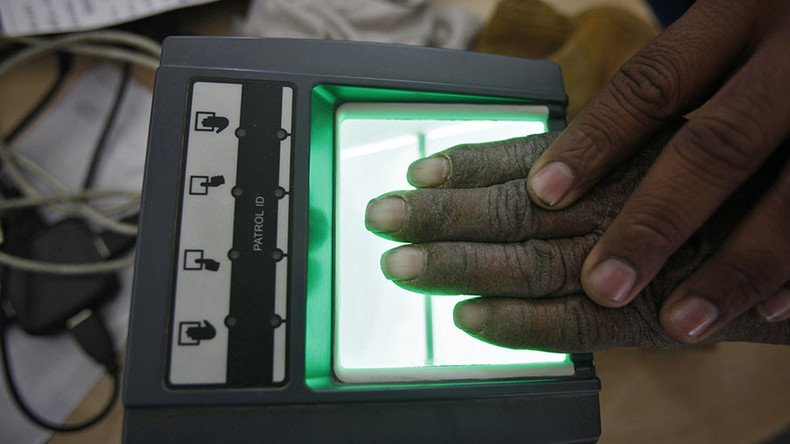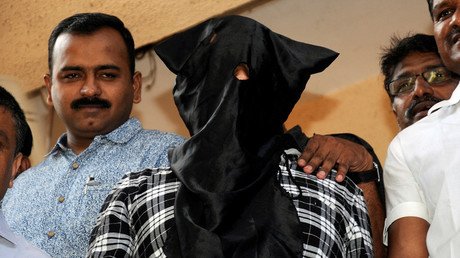Citizens don’t have ‘absolute’ right over their bodies, privacy complaint is ‘bogus’ - Indian govt

India’s government asserted to the country’s Supreme Court that citizens don’t have “absolute” rights over their bodies, and the privacy argument is “bogus.” They were discussing a controversial new system, allegedly used to fight fake IDs.
The Aadhaar system involves biometric information such as blood and fingerprints stored in encrypted format, and initially, the government said it would only be voluntary.
However, the court was hearing three petitions against Aadhaar on Tuesday, with the petitioners arguing that Section 139AA of the Income Tax Act, which was introduced via this year’s latest Budget and Finance Act, is unconstitutional.
Section 139AA requires Indian citizens to cite their Aadhaar details or enrolment ID of their Aadhar application form in order to complete their income tax returns, as well as to apply for a PAN [Personal Account Number] starting from July 1. This makes it mandatory for citizens to get the unique identity number.
The government argued that the measure serves to weed out fake PAN cards and identity theft in general, used for activities such as the circulation of ‘black’ money and terrorism funding. Aadhaar is a secure way to cope with the issues, the government said.
“Today, you have black money which is being used in drug financing and terror financing. So it was decided to bring in a more robust system by which [the] identity of a person cannot be faked,” Attorney-General Mukul Rohatgi said, as cited by local media outlet First Post.
While the activists said the government violates their privacy, that aspect didn’t seem of much concern to the authorities.
“There is no absolute right over the body. If such a right existed, then committing suicide would have been permitted and people would have been allowed to do whatever they wanted with their bodies. The right not to have bodily intrusion is not absolute, and the life of a person can also be taken away by following a due procedure of law. People cannot commit suicide and take drugs,” Rohatgi said, as cited by the Times of India.
The attorney-general added that as no consent is needed to obtain samples of blood and fingerprints from an accused in a criminal case, there’s nothing wrong in getting them for a PAN card.
Rohatgi went on to brand the privacy argument as “bogus,” saying, “Even if you want to be forgotten, the state is not willing to forget you.”
Nevertheless, Rohatgi maintained that the Aadhaar system isn’t used for surveillance.
“It is not meant to track anyone. The purpose is not to create Uncle Sam who will keep snooping. It is meant to make India a tax-compliant society and ensure that the benefits of welfare schemes reach the poor.”
The court told the official that the examples given by him were not appropriate, adding that a balance had to be kept between an individual's right and the state's actions.
The whole system and the Attorney General’s latest comment have sparked heated debate online.
This AG n the government have clearly lost it. How can ones right to life be absolute without the same right over ones body? #Aadhaar Also > pic.twitter.com/K1NmIhH17X
— Vidya Shankar Aiyar (@VidShankarAiyar) May 3, 2017
@ndtv Don't be proud over your 6 pack abs or hour Glass figure. It also belongs to government of India #Aadhaar
— chaloo pandey (@chaloo_pandey) May 3, 2017
Did I read correct : the AG cites examples of forcibly taking DNAs from accused as a defence for #Aadhaar ? Again what is he smoking.
— Tehseen Poonawalla (@tehseenp) May 2, 2017
In fact Aadhaar is helping all of us to improve awareness and fast track need for privacy related laws. India is still at nascent stage
— Dinakaran (@dks) May 3, 2017













